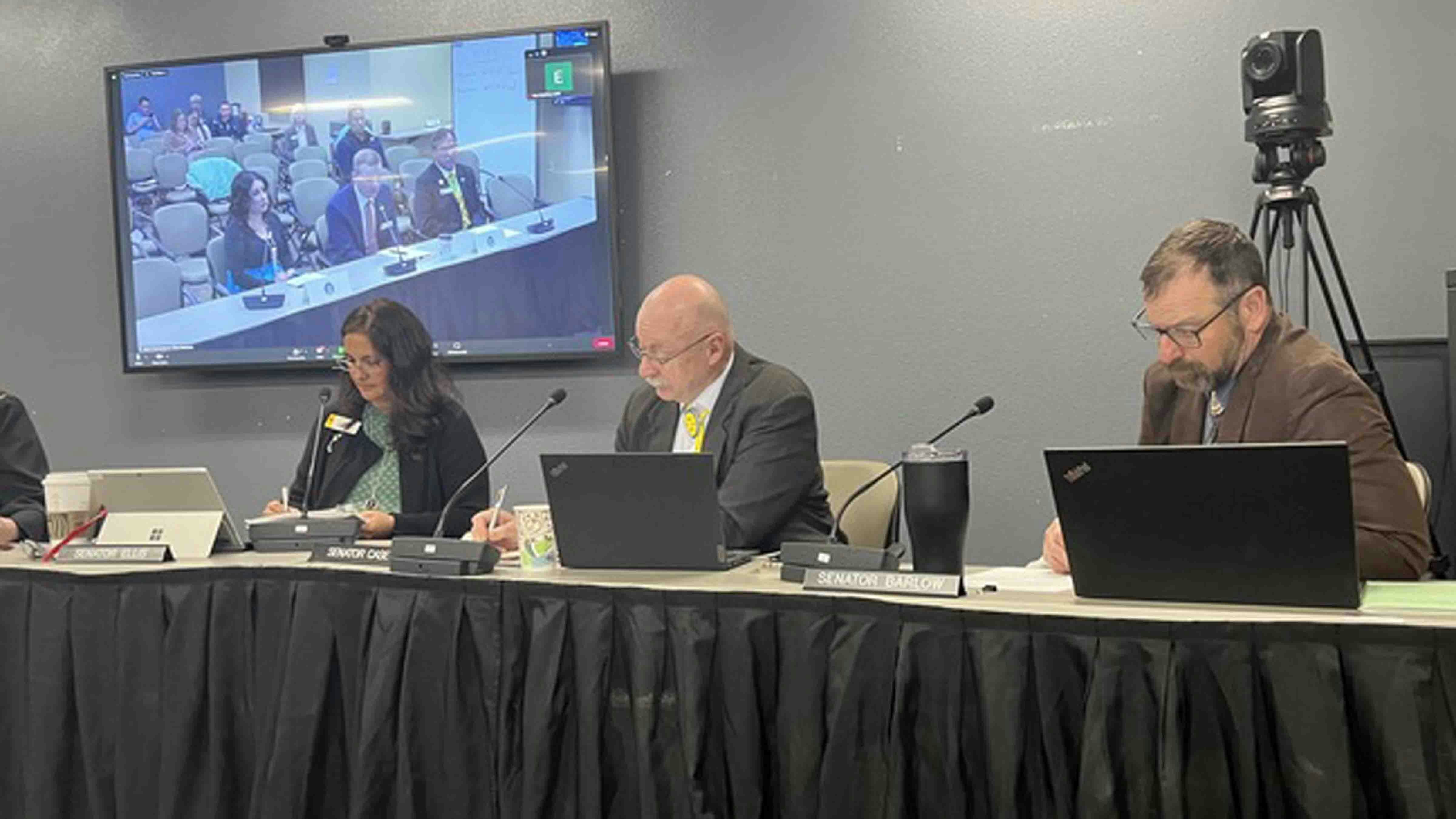A tax committee serving both American Indian tribes in Wyoming asked state lawmakers to keep allowing online stores to tax natives, while sending those taxes to the tribal governments.
“We made the decision (for) the Eastern Shoshone Business and Northern Arapaho Business Councils to pursue (this legislation),” Clarence Aragon, director of the Wind River Tax Commission, told the Wyoming Legislature’s Select Committee on Tribal Relations during its Wednesday meeting in Fort Washakie, Wyoming.
Still in draft form, the bill Aragon touted would allow Wyoming to collect taxes on online purchases placed by tribal members from the Wind River Indian Reservation, then to send 99% of those tax revenues on to the two tribal governing councils, or to their shared intertribal council.
The Wyoming Department of Revenue would keep the remaining 1% for its administrative expenses, Aragon said.
“Our department will work diligently on forming a resolution,” Aragon said.
Taxing tribal members’ internet purchases and sending that money on to the tribal governments is preferred over trying to tax-exempt — and enforce the exemption of — each of those sales, he added.
Eastern Shoshone Business Council Chairman John St. Clair said the Shoshone Tribe agrees. He was encouraged to hear the tax commission had reviewed both potential avenues, he said, adding that he may have some minor edits to the plan before it becomes final.
Another Tax?
The message from a Northern Arapaho Business Council member, Kim Harjo, wasn’t as favorable.
“We are already taxed when we shouldn’t be taxed,” said Harjo, referencing an ongoing effort to reimburse tribal members who were taxed by a utility company. “And now another mechanism of taxing — this again?”
Legislative Committee Co-Chair Sen. Affie Ellis, R-Cheyenne, countered, saying this wouldn’t be a new tax, it would be a means of redirecting the online taxes that are already collected on tribal members from reservation-based sales.
Those taxes are collected in error, clarified Kit Wendtland, who works as special counsel for Gov. Mark Gordon.
“I understand from the committee these efforts are to remedy that error,” said Wendtland. “In whatever the tribes tell us is the respectful way to do that on their end.”
And yet, tribal members pay sales taxes by law like anyone else when they leave the reservation and buy items in other towns, like Riverton or Lander, said Bret Fanning, excise tax administrator from the state Department of Revenue.

Easier Than Enforcing Exemptions
While still nascent, the direction the Wind River Tax Commission recommended would require more than an act of legislation. Both tribes and possibly their joint government would have to forge a memorandum of understanding with the state of Wyoming to determine how best to divide the money.
For example, the separate tribes have voiced concerns about keeping tax revenues on sales placed from their respective casinos, Aragon said.
Sen. Cale Case, R-Lander, whose district spans the reservation as well, said he’s excited about the notion of routing tribal members’ taxes to their tribal governments.
“This is really kind of a historic turn,” said Case. “I’m kind of excited about this approach, as opposed to the (blanket) exemption approach.”
Had the Wind River Tax Commission chosen the other plan of enforcing tax exemptions on every online sale tribal members place from the reservation, the state Department of Revenue would have had “issues administering” that, Fanning said.
Ellis elaborated: “We’ve heard from the Department of Revenue, just the sensitivity of doing audits – and Department of Audit to come out onto the reservation – because of concerns of overstepping on your jurisdiction.”
In other words, Ellis indicated, sending state employees onto the reservation for tax audits could offend the two tribes’ sovereignty.
Clair McFarland can be reached at clair@cowboystatedaily.com.





